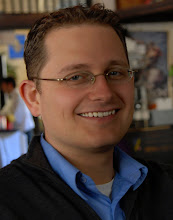The other day I interviewed JKT’s cousin (on his father’s side). Never sustaining a consistent familial relationship with the Toole side of the family, JKT reconnected with his cousin at several points in his life. The information he shared with me offered intriguing insight into the final moments of Toole’s life, details that contradict some commonly held beliefs about his last days. I will not go into the details of the conversation here. After all, I must keep something for publication.
However, I will say that his cousin, unlike most people I have interviewed for this book, did not focus on Toole’s wit or humor. As a biographer, I tend to look for consistency in recollections. Expectedly, I have found Toole’s wit and humor, as evident in his novel, the qualities of his personality that his friends find most memorable. But my conversation with Toole’s cousin highlighted a different aspect of Toole. And expectedly so. Their exchange was based on brief, but important interludes in Toole’s life. It seems Toole contacted his cousin when he sought a confidant who could relate to the challenges of life in the Toole household.
My conversation with JKT's cousin reminds me of the complexity of that elusive thing we call personality. Each one of us refines and displays behavioral characteristics, which eventually become iconic of our person. Even with our closest friends and family, social dynamic may determine our behavior. But at times, we may seek counsel with friends or family members on the margins of our circle--the friend of a friend, or a distant cousin. Do we gravitate to such individuals because we can momentarily discard the mask in which we live and find a more authentic discourse? And after doing so, do we maintain that authenticity? Or having refreshed ourselves, do we once again don the mask, because it is where we are most comfortable?
In the face of such questions, Ralph Waldo Emerson and Walt Whitman echo in my ear:
“Why drag about this corpse of your memory lest you contradict somewhat you have stated in this or that public place?” Emerson asks.
"Do I contradict myself? Very well then I contradict myself, (I am large, I contain multitudes.)" Whitman proclaims.
And so, I recognize that every contradiction needn't be resolved, for the complexity and the idiosyncrasies of the individual, as Emerson and Whitman argue, is a condition to celebrate.
Wednesday, June 17, 2009
Subscribe to:
Post Comments (Atom)

I do hope your book is more fact-searching and less flattery/bias than the book I read by Joel Fletcher. I would suspect, from what I've read between the lines of Fletcher's version of facts, that there was a history of depression in JKT's family tree. There were 2 suicides on his mother's side of the family that were brushed over non-elaborately that lead me to think JKT's upbringing via a pretentious, over-bearing and highly narcissistic mother who found "suicide" and "homosexuality" as being complete demoralizing shames on the highly-touted family name, gave him no outlet for discussion of depressive thoughts, homosexual tendencies, and for the most part, he probably kept his own counsel because he had no one else he could trust... imagine if his mother had ever heard of such things, what a tyrannical verbal lashing it would have led to.
ReplyDeleteArtists are sensitive, and this is especially seen in JKT's admittance to Gottlieb that criticisms of "Confederacy..." were direct slashes to his soul. Being told you are stupid, unworthy of your supposed genetic Ducoing social superiority, and knowing that no partner, even female, would ever be "good enough" for Thelma, would depress anyone, even those without the genetic predisposition of depression. I do not believe JKT was mentally ill, or deeply anguished over his sexual identity... my gut tells me, he was tired and hen-pecked literally to death, with no means of escape without becoming a reputable social grotesque who "abandoned" his parents and left them to die alone. His book wasn't published yet, and I suspect that if Thelma knew of the book, from what I can gather of her abusive character, however unintentionally done, she probably threw that in his face a bit too. Combine all of that with alcoholism as the outlet, and strange horrible things are bound to happen.
I am probably wrong, and I do hope your upcoming book enlightens me as to these mysteries and clears up some of the doubts that Mr. Fletcher's version gave me. Kudo's to you for this project. I eagerly await your book release.
Thanks for your comment G. Lameier. I hope my book provides you rooted answers to the questions you have about Toole. Thelma Toole is quite a character, one that is difficult, if not impossible to get past. But I am also
ReplyDeletewary of the tendency to make Toole into a caricature of an artiste fatale. As one of his friends from Company A said to me, John Toole was a very complex person. Butterfly in the Typewriter will show and explore that complexity--and its connection to his literary work.
I am sorry you found Fletcher's book disappointing. When I read his book many questions remained in my mind as well. But it is worth noting that Feltcher never proposed that he authored a biography; it is a memoir. In fact, he makes a call for someone to write a proper biography--a call that I, quite literally, answered.
I look forward to hearing your feedback on my book about the life of John Kennedy Toole.